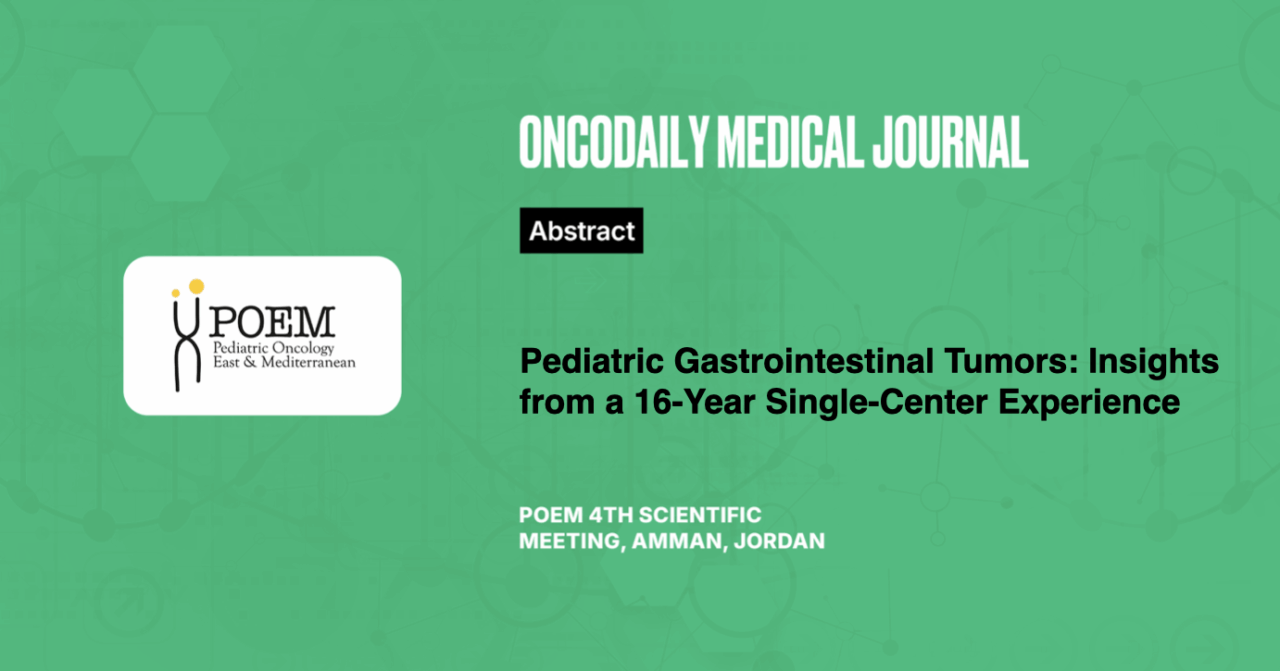Pediatric Gastrointestinal Tumors: Insights from a 16-Year Single-Center Experience
Abstract
Introduction: Pediatric gastrointestinal tumors (GITs) are rare, with no standardized treatment protocols, often adapted from adult guidelines. We aim to evaluate the clinical presentation, treatment approaches, and outcomes of pediatric patients with GITs treated at our center.
Methodology: We conducted a retrospective review of pediatric patients (≤18 years) diagnosed with gastric, colorectal, gastrointestinal stromal tumors(GISTs), and neuroendocrine tumors (NETs) between January 2007 and December 2023. Patient demographics, clinical characteristics, treatments, and outcomes were analyzed.
Results: 25 pediatric patients with GITs were identified, with a median age at diagnosis of 15.7 years. Females comprised 52% of the cohort. Colorectal cancer was the most common histologic subtype (n=11), followed by NETs (n=7), gastric cancer (n=4), and GISTs (n=3). The most frequent presenting symptom was abdominal pain (52%), followed by fatigue and weight loss (n=3). Metastatic disease was observed in 40% (n=10), including 3 with gastric cancer, 5 with colorectal cancer, one with GIST, and one with a NET. Of the 15 patients who underwent genetic testing, 8 were found to have a cancer predisposition syndrome, all associated with gastric/colorectal cancer. A positive family history of cancer was reported in 12 patients (48%), including eight with GI origin. Surgical intervention was performed in 68% of cases. Systemic therapy was administered to 18 patients, including chemotherapy (n=13, gastric/colorectal cancer), imatinib (n=3, GIST), and everolimus (n=1, NET). At last follow-up, eight patients had died (3 with gastric cancer, 4 with colon cancer, and one with NET).
Conclusion: Pediatric GITs are exceptionally rare, with most patients presenting at an advanced stage. Outcomes remain poor, particularly for gastric and colorectal cancers, emphasizing the need for early detection and more effective therapeutic strategies. Given the high prevalence of cancer predisposition syndromes among these patients, genetic screening should be considered in all pediatric cases of gastric and colorectal cancer.





